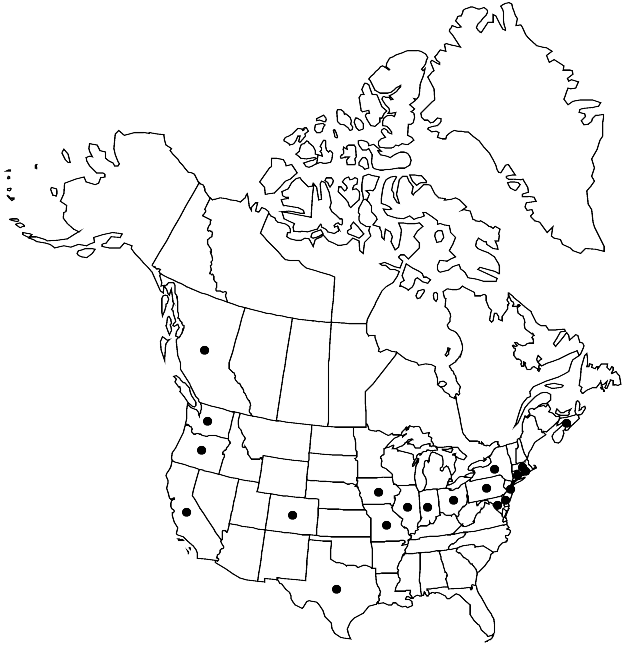Reseda luteola
Sp. Pl. 1: 448. 1753.
Plants annual or biennial, (20–)40–100(–150) cm, glabrous. Stems erect, simple or branched. Leaves (cauline subsessile distally); blade oblong-spatulate, 5–10(–15) × 0.5–2 cm, margins entire or subentire (flat or crispate), surfaces glabrous or, sometimes, with 1–2 conical glands basally. Racemes 10–50 cm; bracts persistent, lanceolate-attenuate, 2–3.5 mm (4–5 mm in fruit). Pedicels 1–3 mm. Flowers: sepals persistent, 4, not reflexed in fruit, lanceolate-ovate, 1–2.5 mm; petals 4, yellowish, 2–4 mm, rounded-clawed, adaxial ones irregularly lobed; stamens 20–40; filaments persistent, 2–3 mm, glabrous; intrastaminal nectary-discs glabrous; anthers 0.5–0.6 mm; placenta forked distally. Capsules erect, 3-carpelled, ovoid to subglobose, 3–5 × 4–6 mm, apically 3-toothed, usually glabrous. Seeds 0.6–1 mm, glossy, smooth. 2n = 24, 26.
Phenology: Flowering (Jan-)Mar–Sep(-Dec).
Habitat: Waste ground, roadsides, fields, railway yards, ballast ground, basic and sandy soils
Elevation: 0-2900 m
Distribution

Introduced; B.C., N.S., Calif., Colo., Conn., Del., Ill., Ind., Iowa, Md., Mass., Mo., N.J., N.Y., Ohio, Oreg., Pa., R.I., Tex., Wash., Europe, sw Asia, n Africa, n Atlantic Islands, introduced also in n, c Mexico.
Discussion
Reseda luteola is a traditional Old World dye plant, used since Roman times. It contains a high amount of the flavonoid luteolin, which yields one of the most brilliant yellow dyes. When combined with woad (Isatis tinctoria, Brassicaceae), it yields “Saxon Green.” In the nineteenth century R. luteola was widely growing, which favored its spreading through many parts of the world; today, it has fallen into disuse. Its potential as a crop for natural dyeing of textiles is being re-evaluated. It is also grown as an ornamental; the appealing rosettes of yellowish green leaves acquire a reddish blush in cool weather.
Selected References
None.